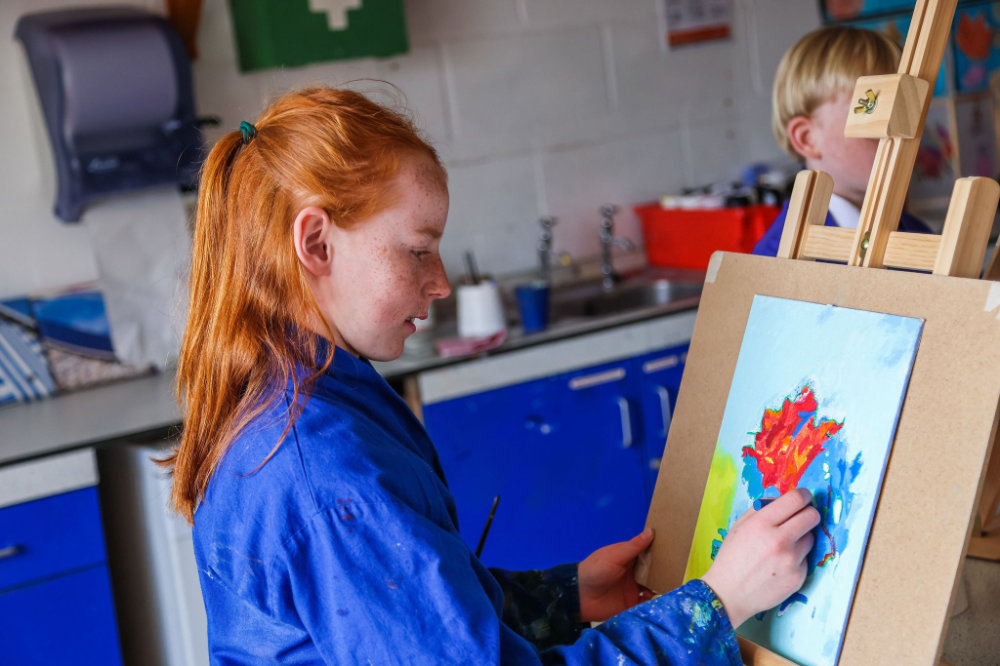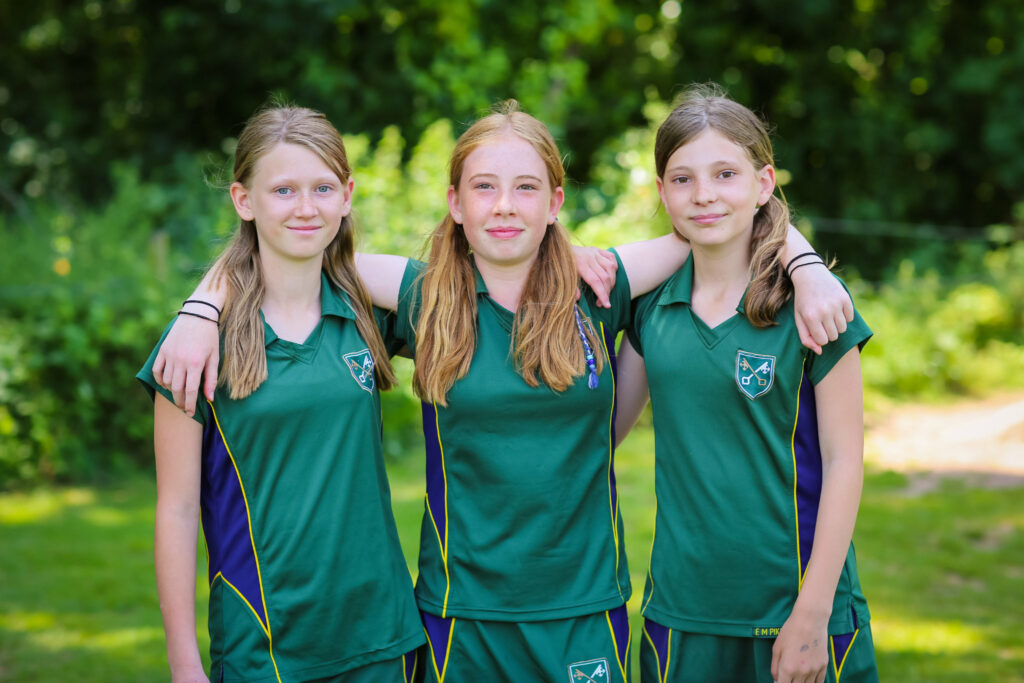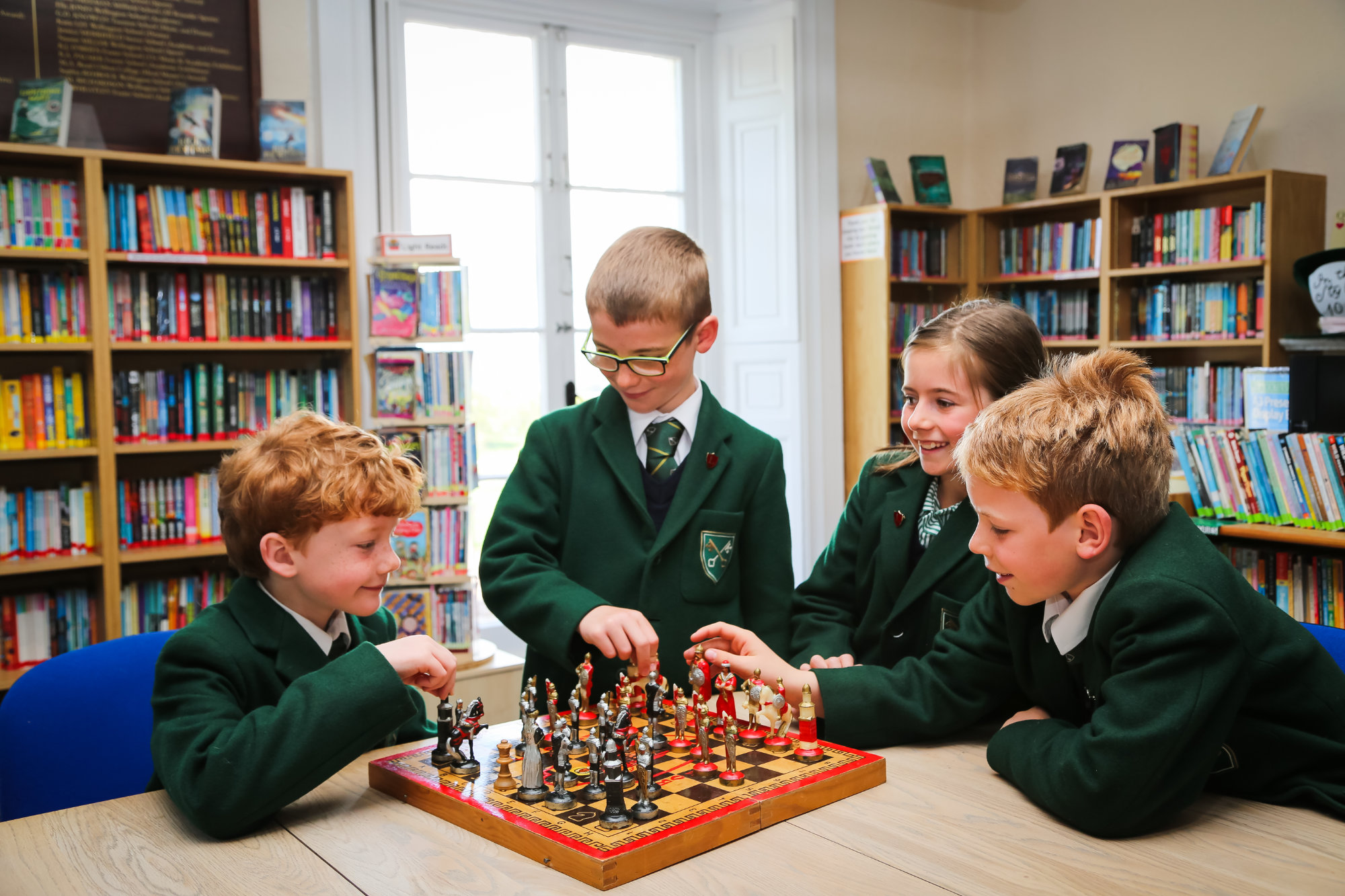Hobbies allow children independence, self-expression, creativity, and exploration, fostering holistic development beyond academic pursuits. At St Peter’s Prep, our independent school in Devon, we recognise the importance of hobbies in shaping well-rounded and confident individuals. We encourage our students to explore their interests, empowering them to discover more about their passions and strengths.
Whether it’s painting, sports, or music, hobbies cultivate essential life skills like problem-solving, teamwork, and time management. Hobbies also instil a sense of fulfilment and confidence, benefiting the mental health of our students.
Types of Hobbies for Children
Children can explore various hobbies throughout their school and personal life, catering to their diverse interests and talents. Here are some examples of hobbies for children:
- Creative hobbies: painting, drawing, artwork, cooking.
- Outdoor hobbies: gardening, bird watching, walking.
- Musical hobbies: playing an instrument, singing lessons, choir.
- STEM hobbies (science, technology, engineering, maths): coding, robotics, puzzle-solving.
- Academic hobbies: reading, writing, poetry, learning a new language, debating clubs, public speaking events.
- Physical hobbies: team sports (like football, rugby, basketball), martial arts, dancing, gymnastics, netball, sailing, surfing, running club, swimming, and more.

How to Get Your Child Involved in Hobbies
Getting your children involved in hobbies is a fantastic way to enrich their lives and expand their horizons. But how can you encourage your child to take up hobbies in the first place?
Understand Your Child’s Interests
Firstly, you’ll want to understand your child’s interests and passions. Without this knowledge, you won’t be able to guide them in the right direction towards something they might enjoy. Ask them about what activities they’d like to try and discuss their options together so they feel supported. By doing so, they’ll feel listened to and not ‘pushed’ into participating in an activity that doesn’t reflect their interests.
Attend School Events
Take advantage of school events like fairs, talent shows, and open days. These events allow your child to explore various interests and meet fellow students who share similar passions.
Research Extracurricular Activities
Communicate with your child and research extracurricular activities available at their school. Why not also explore local clubs outside of school that your child can participate in on the weekends and school holidays?
If you’d like to learn more about how to get your child into hobbies, our previous guide can help.

Support Your Child’s Choices
Respect and accept your child’s interests and choices, even if they differ from your own preferences. Offer support and encouragement as your child explores new hobbies, too, allowing your child to experience various options before committing.

How Hobbies Can Benefit Children
Hobbies are crucial in children’s development, contributing to their physical, emotional, social, and cognitive well-being. Encouraging children to pursue their interests through hobbies can have long-lasting benefits beyond their childhood.
Here’s how hobbies can positively benefit children:
1. Personal Development
Hobbies foster personal growth by allowing children to explore their interests, discover their strengths, and build self-confidence.
2. Stress Relief
Engaging in hobbies offers children a healthy outlet for managing stress and anxiety. Engaging in enjoyable activities allows them to unwind and focus on something that makes them happy, providing a sense of relaxation.
3. Social Skills
Participation in hobbies encourages children to interact with peers who share their interests, forming a gateway to create new friendships and fostering the development of critical social skills such as communication, cooperation, and teamwork.
4. Creativity
Hobbies stimulate creativity and imagination by encouraging children to think outside, experiment with new ideas, and express themselves in their own ways.
5. Time Management
Balancing schoolwork with hobbies teaches children valuable time management skills, helping them prioritise tasks, set goals, and manage their schedules effectively.

6. Physical Health
Physical hobbies promote active lifestyles and physical fitness, contributing to children’s health and well-being. Regular exercise through hobbies also helps reduce the risk of obesity and related health issues.

7. Increased Self-Esteem
Engaging in hobbies provides children with a sense of accomplishment and mastery, which boosts their self-esteem and confidence. When children excel or progress in their hobbies, they experience a sense of achievement. This positively reinforces their belief in their abilities and strengthens their self-esteem.
8. Sense of identity
Hobbies allow children to explore what they’re passionate about, helping them develop a sense of identity and self-awareness. As they pursue activities that resonate with them, they gain a deeper understanding of who they are and what they enjoy, encouraging their individuality.
9. Life Skills
Additionally, hobbies teach children valuable life skills such as perseverance, patience, and communication. Whether learning to play a musical instrument or mastering a new hobby, children develop essential life skills that will benefit them in various aspects of their lives.
Hobbies play a vital role in shaping children into well-rounded individuals, offering benefits beyond mere enjoyment. From fostering creativity and social skills to building self-esteem and resilience, hobbies provide invaluable opportunities for growth and development.
At St Peter’s Prep, we encourage hobbies through our extracurricular activities and a supportive learning environment. Request a prospectus today to learn more about what we offer St Peter’s Prep and how we empower children to thrive academically, socially and personally through our approach to learning.









